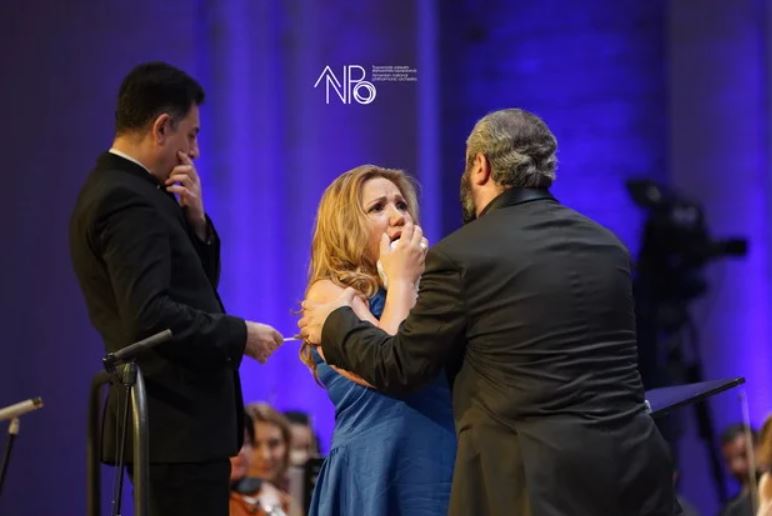Yesterday I received a book as a gift from Hovhannes Chekijian. The 95-year-old conductor, who continues to live an active, creative life, wrote warm words to me in the inscription. And my mind went in the following direction. The incident of one such person is more important to me than the insult or slander of 10 thousand people, let’s say, Facebook users. It is a matter of the relationship between quality and quantity.
Since approximately the 18th century, they have been trying to insert into our brains the pointless and hollow thesis “the people are always right,” whose “market” modification is the equally meaningless statement “the customer is always right.”
Rabis gets millions of views, so let’s all listen to rabis and eventually become one. In “Soviet times,” people scrambled to listen to Zeynab Khanlarova’s concerts. Or during the same period, stealing from the state was considered a sign of being “resourceful.” Were “the people right”? Young people today need tons of drugs, let’s provide them; the customer’s wish is the law, right?
Hundreds of thousands of Armenians do not feel national humiliation after the defeat in the war, and they do not consider Pashinyan guilty of that defeat; why don’t you join the majority? Could you be the “former,” or perhaps you want Poghos or Petros to come to power?
Read also
Understanding what the majority wants, of course, requires talent from a politician.
Moreover, it is the most essential component of a politician’s craft. Recently, I watched Pozner’s interview with the author of the historical novel Edvard Radzinsky, made years ago, and the writer reminded me that during the 1917 riots, the provisional government, parties, and most of the intelligentsia did not know what to do. And only the leader of one of the non-multi-member parties understood what the people wanted. Accordingly, he proposed two slogans: “Loot the looted” and “End the war.” The “puzzle” was completed, and perfect harmony was established between the government and the people. Because according to the same author, the Russian people do not need democracy and legality but “justice.” That “justice” was confirmed in the way the people wanted. In my view, the citizens of Armenians need the same.
Politicians and good business people should feel what the people or the customer need and contribute to satisfying that demand with their activities. But I have no such obligation. I see my mission in a completely different place: to present what suits my taste to those who need it. The number of people, in this case, is not essential.
Aram ABRAHAMYAN





















































